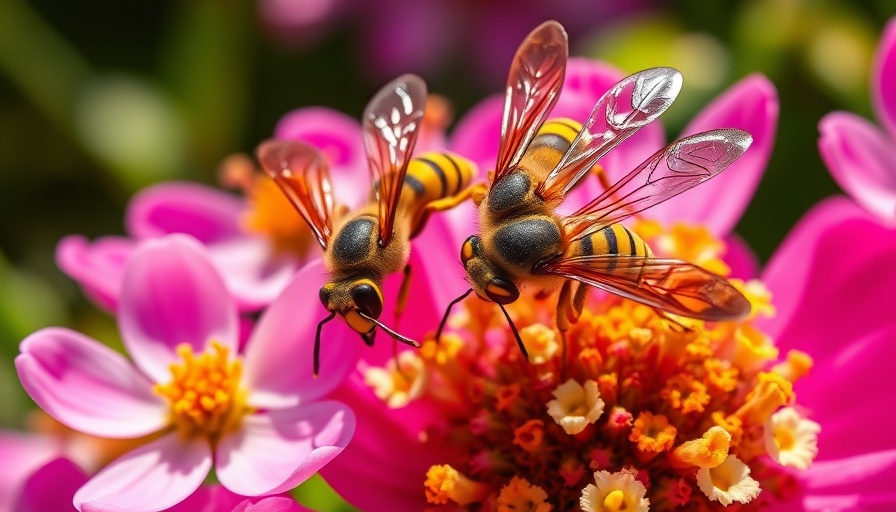
Why Wasps are Essential Allies in Your Garden
When many people think of wasps, they picture discomfort from stings and the annoyance of their presence during outdoor activities. However, these misunderstood insects play a crucial role in maintaining the health of gardens and ecosystems. Understanding the potential benefits of wasps can transform your perspective, leading you to consider them not as pests but rather as invaluable helpers.
Wasps as Nature’s Carnivorous Guardians
Wasps are often viewed as mere pests, but they are actually proficient predators in the insect world. They help control populations of harmful pests that threaten your plants, such as caterpillars, beetles, and aphids. By dining on these garden nuisances, wasps reduce the need for chemical pesticides, making your gardening efforts more sustainable and natural.
The Unseen Pollinators: Wasps in Action
In addition to their predatory nature, wasps contribute to pollination—though often overlooked compared to their bee counterparts. Many species of wasps are nectarivores and actively visit flowers to collect nectar. As they move from flower to flower, they inadvertently aid in the pollination process. While bees remain essential to global agriculture, wasps also significantly support many flowering plants, including fig trees, enhancing biodiversity in your garden.
Addressing Common Misconceptions About Wasps
A common misconception is that wasps only cause harm, but they also provide critical ecological benefits. Their populations can effectively manage the balance between plant-eating insects and pollinators, contributing to healthier crops and flora. Learning to appreciate these creatures can lead to a more harmonious gardening experience.
Making Peace: Coexisting with Wasps
Coexistence is key when it comes to wasps in your garden. By creating an environment that encourages beneficial insects, such as wasps, you will enhance the overall health of your ecosystem. Planting diverse flower species, reducing disturbing habitats, and allowing some wilderness to remain can cultivate an inviting space for various beneficial insect species.
Future Predictions: The Role of Wasps in Organic Gardening
As more gardeners shift towards organic practices, the need for natural pest management becomes even more critical. With increasing awareness of the hazards posed by synthetic chemicals, wasps offer a sustainable option for controlling pests and enhancing pollination. Their role will likely grow more essential as urban farming and sustainable agriculture gain traction.
Actionable Insights for Your Garden
To support wasps in your own garden, consider planting a variety of flowering plants that attract and nourish them. Aim to create a diverse ecosystem where beneficial insects can thrive. By fostering an environment where wasps can coexist with other important garden dwellers, you will promote health, resilience, and harmony in your gardening practices.
In celebrating the benefits wasps bring to our gardens, we can embrace these creatures and work towards a balanced ecosystem that depends on cooperation between all living beings.
 Add Row
Add Row  Add
Add 




 Add Row
Add Row  Add
Add 

Write A Comment